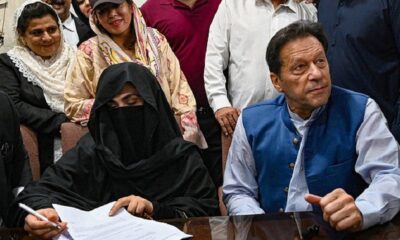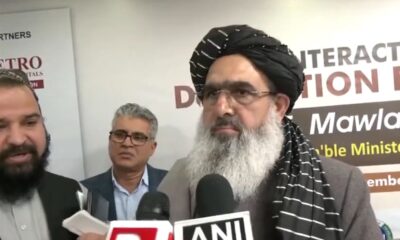Latest News
WFP survey finds about 98% of Afghans not getting enough food
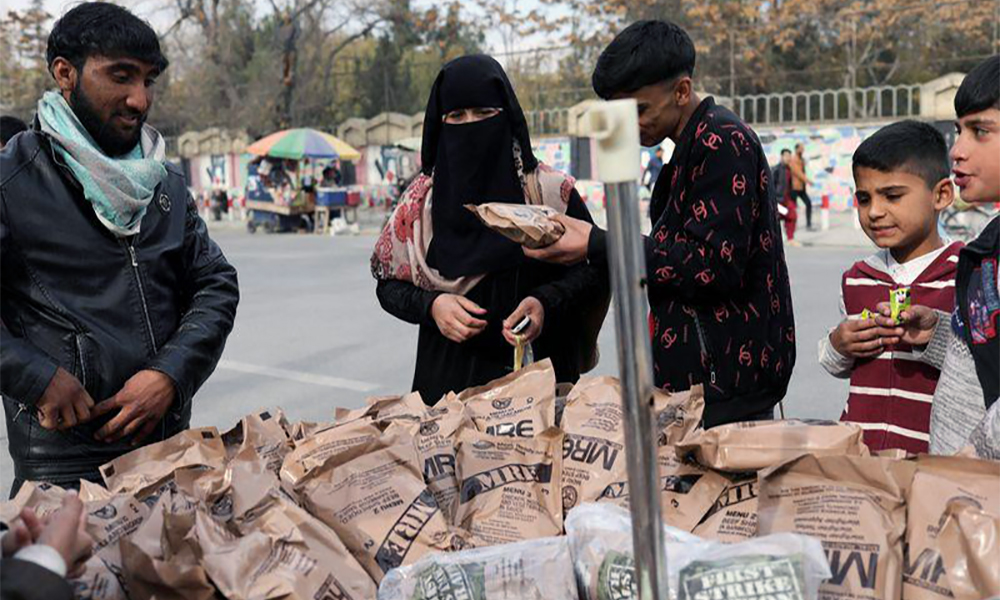
Almost all Afghans do not have enough to eat and a failing economy could tip Afghanistan’s increasingly dire situation under Islamic Emirate of Afghanistan (IEA) rule into catastrophe next year, the UN’s World Food Programme (WFP) said on Tuesday.
A WFP survey found an estimated 98% of Afghans are not eating enough food, with seven in 10 families resorting to borrowing food, which pushes them deeper into poverty, a spokesperson for the agency told reporters.
The abrupt withdrawal of foreign aid following the IEA victory in August has left Afghanistan’s fragile economy on the brink of collapse, with prices for food, fuel and other basic staples rising rapidly out of reach for many people.
“The spiralling economic crisis, the conflict and drought has meant the average family can now barely cope,” Tomson Phiri told a Geneva briefing. “We have a huge amount to do to stop this crisis from becoming a catastrophe.”
WFP has provided food assistance to 15 million Afghans so far in 2021, and to seven million in November alone. Next year, it plans to ramp up its assistance to 23 million people across all provinces in Afghanistan.
“We cannot waste any moment,” Phiri said. “Our country director describes the situation as quite dire. She says it’s ‘an avalanche of hunger and destitution’.”
Separately, Nada Al-Nashif, UN Deputy High Commissioner for Human Rights, said Afghan families face “severe poverty and hunger” with many pushed into desperate measures, including child labour, early marriage and “even the sale of children.”
Latest News
Afghan health minister calls for medical cooperation between Kabul and New Delhi
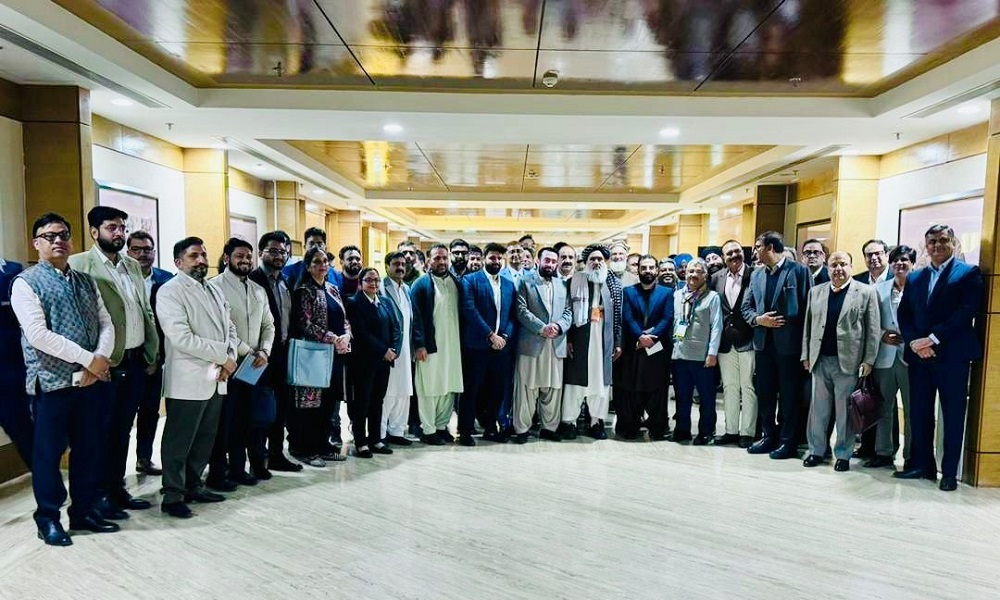
Afghanistan’s Health Minister, Noor Jalal Jalali, held a meeting on Saturday with officials from Pharmaceuticals Export Promotion Council (PharmEXCIL) to discuss expanding cooperation and bilateral relations in the fields of medicines, medical products, and health equipment between Kabul and New Delhi.
In a statement issued by the Afghan Health Ministry, both sides also emphasized strengthening the pharmaceutical industry’s capacity and the importance of providing affordable, high-quality medicines to the public.
The talks also focused on boosting cooperation in medicines, medical products, and healthcare equipment, highlighting affordable and quality drug access.
Jalali called PharmEXCIL’s support crucial for strengthening Afghanistan’s healthcare system and delivering standardized services.
He added the partnership is strategically important for drug safety, quality assurance, and sustainable health services.
PharmEXCIL outlined its work in pharmaceuticals, vaccines, biologics, medical devices, diagnostics equipment, herbal medicines, contract manufacturing, and R&D.
The council, under India’s Ministry of Commerce, oversees the promotion, regulation, and export of Indian medicines and health products.
PharmEXCIL also donated around 100,000 patches to Afghanistan to support treatment of seasonal illnesses.
Latest News
Deputy PM Baradar urges world to expand economic ties with IEA instead of sanctions

Mullah Abdul Ghani Baradar, the Deputy Prime Minister for Economic Affairs, has urged the countries in the region and around the world to soften and expand their economic relations with the Islamic Emirate instead of imposing sanctions and undue pressure.
In a statement issued by the deputy PMs office, Baradar made these remarks on Saturday during a speech at the inauguration ceremony of a commercial market in Balkh province.
Baradar added that a prosperous and strong Afghanistan is not to the detriment of other countries in the region; rather, it contributes to the welfare and strengthening of other nations.
He said: “The Islamic Emirate believes in comprehensive economic and political authenticity in the field of regional and international cooperation, provided that there is mutual respect for major values and fundamental principles.”
He stated that IEA’s engagement with the private sector in large-scale and long-term projects—based on public-private partnerships or other types of contracts—conveys a clear message that the environment for domestic and foreign investment in Afghanistan is favorable, and that anyone can take advantage of this opportunity.
Latest News
Karzai urges reopening of girls’ schools and universities for Afghanistan’s bright future
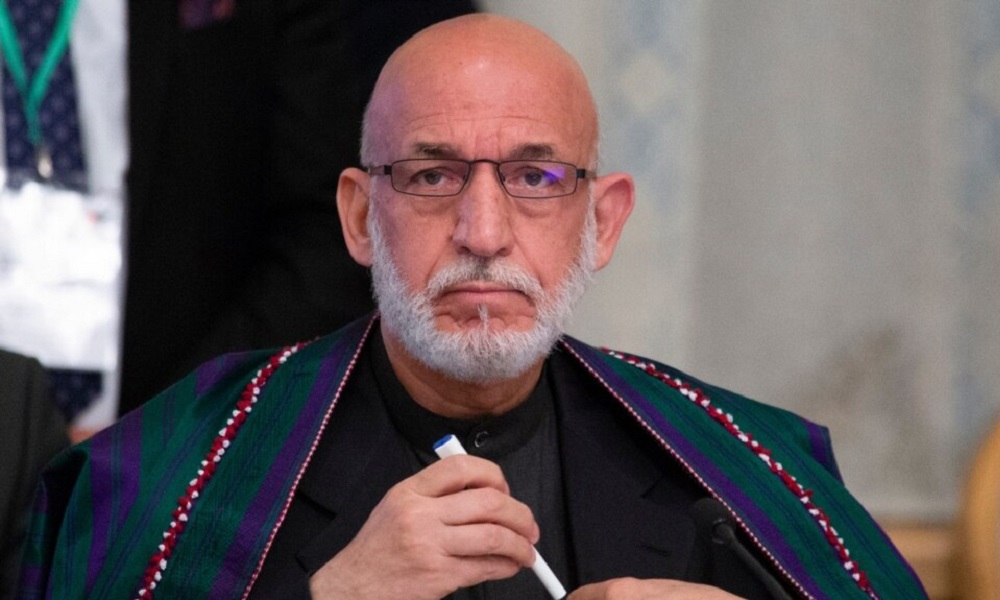
Former Afghan President Hamid Karzai says knowledge and education are the primary pillars of progress and dignity in any society.
In a post marking the end of the academic year and the preparation of 12th-grade graduates for the Kankor (university entrance) exam, Karzai said on Saturday that Afghanistan needs hundreds of thousands of female and male doctors, engineers, economists, technology specialists, and experts in other fields to become self-reliant.
He called on all students to make greater efforts and to reach higher levels in scientific and social sciences.
He once again emphasized: “I hope that, for a bright future for Afghanistan, girls’ schools and universities should be reopened so that our daughters can stand on their own feet and become worthy of serving the country.”
-

 Latest News4 days ago
Latest News4 days agoIEA supreme leader stresses enforcement of Sharia law and sincere public service
-

 International Sports3 days ago
International Sports3 days agoIPL 2026: Teams take shape after auction as franchises balance star power and depth
-

 Sport4 days ago
Sport4 days agoILT20: Sharjah Warriorz secure 11-run victory over Gulf Giants
-
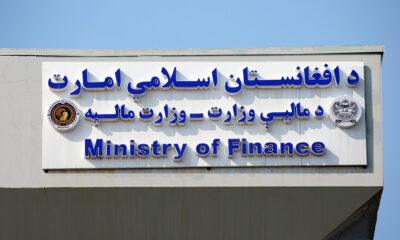
 Business5 days ago
Business5 days agoAfghanistan, India discuss expanding investment opportunities
-

 Sport4 days ago
Sport4 days agoAbu Muslim Farah crowned champions of fifth season of Afghanistan Champions League
-

 International Sports3 days ago
International Sports3 days agoILT20: Abu Dhabi Knight Riders end Desert Vipers’ unbeaten run in dramatic one-run win
-

 Latest News5 days ago
Latest News5 days agoEU and IFC launch €5 million program to support Afghanistan’s private sector
-

 Latest News4 days ago
Latest News4 days agoHigh-level Kyrgyz delegation arrives in Kabul








